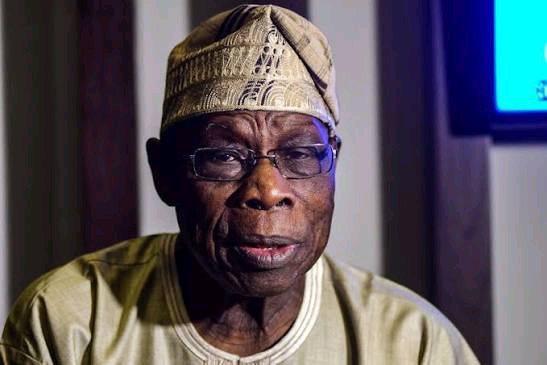Former Nigerian President, Chief Olusegun Obasanjo, has recalled the dramatic moment he first learned of the sudden death of General Sani Abacha while still locked behind prison walls. He described his initial disbelief when the news was first broken to him by a prison warder.
Speaking in an interview with Symfoni TV, Obasanjo said his survival during that period was anchored on faith.
He explained that while in prison, he strongly believed he would come out alive, but he also held the conviction that the man who jailed him, General Abacha, would never be the one to set him free. He admitted, however, that he had no clear idea how such a turn of events would happen.
“God is a wonderful God,” Obasanjo reflected as he narrated the story. “While I was in prison, I believed I would come out of prison alive. I believed the man who put me in prison would not be the one that would release me. But how it would happen, I never knew.”
According to him, the day Abacha died began like any other until a warder approached him with unusual words. The guard, he said, congratulated him, prompting confusion.
When Obasanjo demanded to know what the matter was, the guard told him, “Our enemy has died.” Still puzzled, Obasanjo asked who he was referring to, and the warder replied, “Abacha.”
The news struck him as unbelievable. Obasanjo recalled that his first reaction was to dismiss it outright.
He accused the warder of lying to him and even teased that if money was the issue, he would rather help financially than be fed such falsehood. Yet, the warder maintained the news was true.
His doubts lingered until the evening when another prison officer came in with the same message. This second confirmation made him pause, though he still demanded evidence.
The guard then insisted that CNN had already reported the development, which made Obasanjo consider the possibility that it might indeed be true.
The former president went further to describe the confusion surrounding his own release. He explained that although news of his release spread publicly, it did not immediately translate into freedom. He remained confined, watching the uncertainty play out.
Obasanjo also shared details of an unusual visit from the prison superintendent. On that day, the superintendent came to his cell, something he rarely did. Feeling emboldened, Obasanjo confronted him, warning that once he was released, he would sue for wrongful detention.
The superintendent, however, replied that he could not act on radio or television announcements. He explained that until official orders were issued from his headquarters, he would not release any inmate, no matter what the news outside suggested.
Eventually, a few days after this tense encounter, Obasanjo was informed that the official orders had been given. His release finally marked the end of his imprisonment. See, More, Here>>>>
Coming only after the unexpected death of the man who had vowed he would never walk free again.

